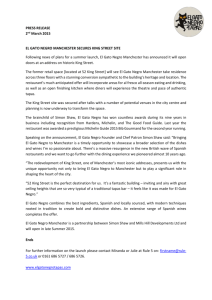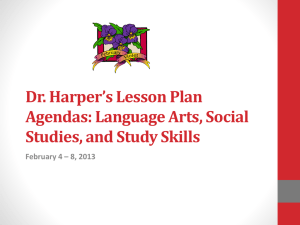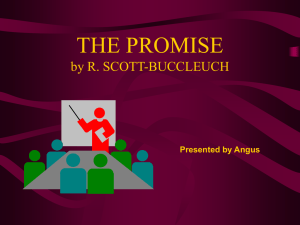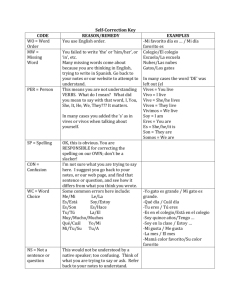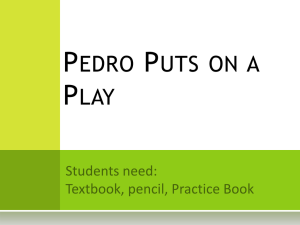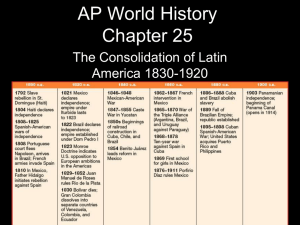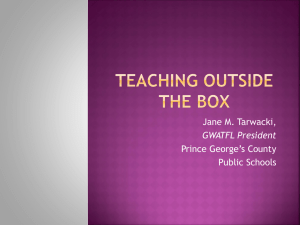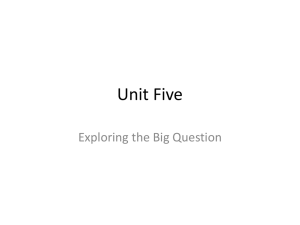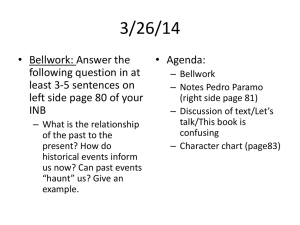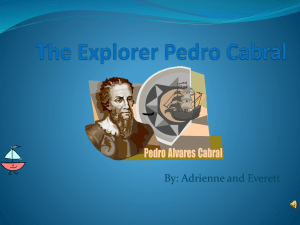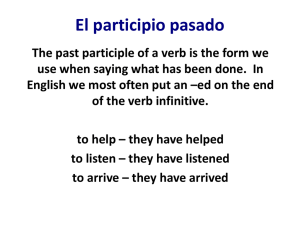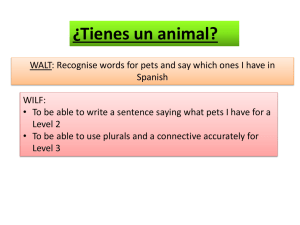cuento del gato
advertisement
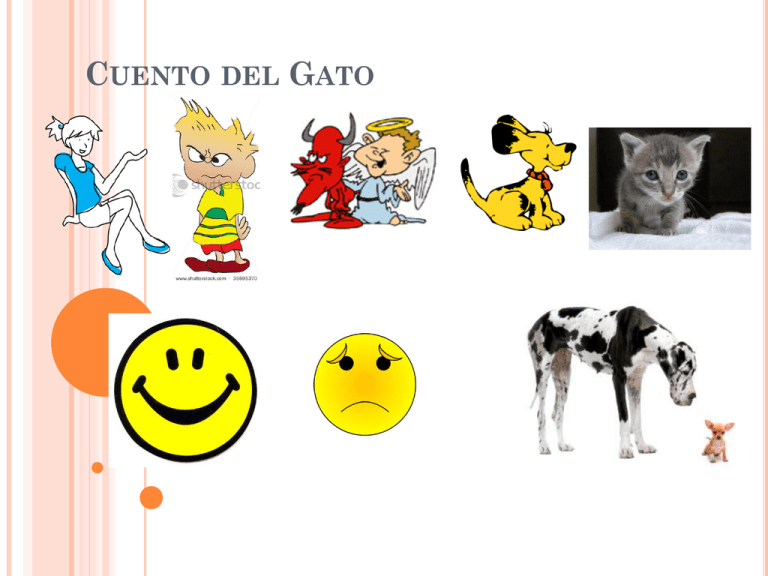
CUENTO DEL GATO TPRS STEP BY STEP Establishing meaning. Tell the story with as much interaction as possible. Repeat story for 3 days. Do a True/False exercise. CUENTO DEL GATO: VERDADERO O FALSO 1. 2. 3. 4. 5. 6. 7. 8. 9. 10. La muchacha se llama Chiqui. La muchacha tiene un perro. El gato tira el perro. El muchacho se llama Pedro. Pedro es un muchacho bueno Pedro escapa. Pedro tira el gato al suelo. La otra chica se llama Mónica. Mónica llora. Chiqui le da el gato a Mónica. Do an activity where students organize sentences from the story. CUENTO DEL GATO ORGANIZA LAS ORACIONES Chiqui tiene un gato. El muchacho tira el gato al suelo. Pedro es un muchacho malo. Pedro agarra el gato. Mónica tiene otro gato. Mónica le da el gato a Chiqui. El gato escapa. Chiqui está contenta porque tiene otro gato. Chiqui llora. Pedro se ríe. Give the text of the story and read with the students. Group students and assign them characters, they will perform the story while another student reads it. Hay una muchacha. Se llama Chiqui. Ella tiene un gato grande. Hay un muchacho. Se llama Pedro. Él es un muchacho malo. Él corre hacia la muchacha, agarra el gato y tira el gato al suelo. El gato escapa. La muchacha está triste. Ella llora, pero Pedro se ríe. Hay otra muchacha. Se llama Monica. Ella tiene otro gato. Mónica ve que Coqui está llorando. Coqui está llorando porque ella ya no tiene un gato. Monica va hacia Coqui y le da su gato. Ahora Coqui está muy contenta. Students complete sentences of the story. CUENTO DEL GATO: COMPLETAR 1. La muchacha se llama _________. 2. __________ tiene un gato. 3. Chiqui tiene un _______ grande. 4. Pedro es un ___________ malo. 5. Pedro _________ el gato al suelo. 6. El _________ escapa. 7. Chiqui ________, pero Pedro ríe. 8. La otra muchacha se llama __________. 9. Mónica va hacia Chiqui y le da su ________. 10. Chiqui no está _______, está contenta porque tiene otro gato. Ask students to tell parts of the story. An alternative is the following game: Post key words from the story, pair students and ask them to tell as much of story for 90 seconds. Every time they use a word, they score one point. Following team take over the story where was left by previous team. JUEGO Hay LlamaTiene Corre Agarra Otro Tira Está Llora Se ríe Ve Da Fin Pair students. Each will receive a copy with drawings that depicts a new story using the same vocabulary and structures as the original. As a student tells the new version, her partner will draw it. Finally, ask students to create their own story using the vocabulary learned. You may ask them to tell their story to the class or to a group of classmates (they also draw their story). RESOURCES “Look, I can Talk! by Blaine Blair Available at www.tpr-world.com Also: www.blaineraytprs.com Resources in Spanish, French, Chinese, German and Russian. Learn more with this article: http://jan.ucc.nau.edu/~jar/RIL_5.html Or www.tprstories.com/ (Karen Rowan´s webpage)
